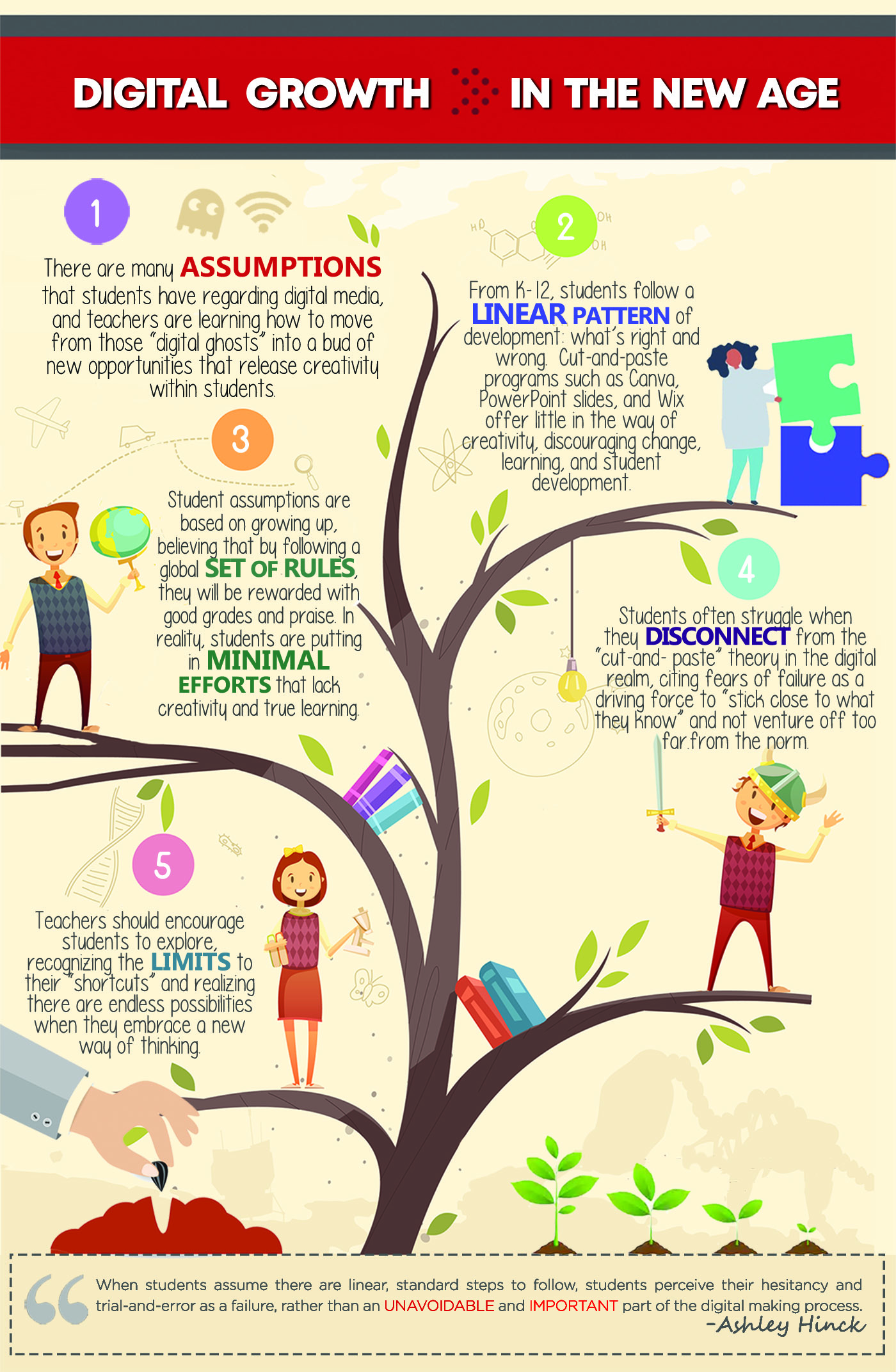For this assignment, I chose to read Ashley Hinck’s “Digital Ghosts in the Classroom” article. The article discussed how many students are often taught in a linear, step-by-step process from K through 12. I found this to be true, as even speaking to students of different decades, they all encountered a similar experience growing up. Students become accustomed to this tradition, lacking blank canvas options, such as Photoshop.

(-GIF used with permission from Giphy)
I believe the main message and big idea to explore is about getting students to change their way of thinking regarding digital media. Students often view these “drag-and-drop” platforms as what teachers expect of them, and they are used to following the steps because they were told these were “correct.” Thus, they have developed a set of expectations, and when they venture from the “norm,” they become hesitant and must go through a “trial-and-error” phase which is foreign and frustrating. As a previous tutor for the advertising program at the college, I saw this everyday when I would help students. Many were more concerned if their graphic was “visually correct” rather than expressing their own creativity. Teachers should focus more on letting students use a trial-and-error system, perhaps failing a few times before they arrive at the final product.

(-GIF used with permission from Giphy)
As I work every day in Digital and Graphic Design, I found the article to be incredibly inspiring, and I wanted to challenge myself. As someone who expresses her creativity through a blank canvas on Photoshop, I thought I would start my infographic using a medium that Hinck spoke about: Visme (like Canva). As she mentioned, most students will use platforms such as Canva, which are limiting, as they offer restricted opportunities to use your own creativity to its maximum potential. I was taught from the beginning to not use these platforms, so for this digital artifact, I decided to do the exact opposite; use a “cut-and-paste” platform to see exactly how restricting it really was. I see creativity like a tree: it starts with the initial seed (idea), and flourishes into something beautiful if you give it the opportunity to do so.

-All images used with permission from Visme.
I found this to be the most frustrating and challenging aspect; as someone who naturally is a creative person, I ended up spending MORE time working on this project then I would have if I would have created it from a blank canvas. I felt frustrated and annoyed when I could not move images around, the layouts did not visually appeal to me, and the fonts were not what I would have chosen. I ended up tweaking some aspects in Photoshop, which then I was able to see both sides of the argument.
In conclusion, I must agree with Hinck: we need to realize that certain technologies can steer us away from creative identities, and we as educators should strive to find a way to adopt new ways to help students envision their own creative selves without worrying if their method is “correct.”
-Lindsay Renaud
